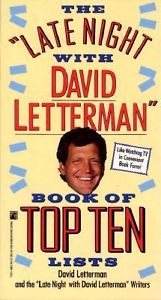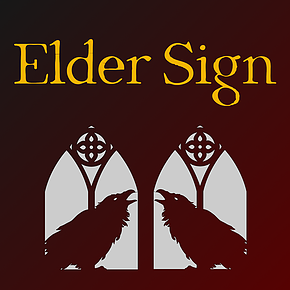Them bats is smart. They use radar.
That’s one of the many, many goofy things that David Letterman lodged in my brain. He inspired me at a young, goofy age to try to be funny.
I do not want to get super-sentimental about it. He’s not being fired. (That already happened to him, and he came out of that OK.) I don’t know him personally. He’s not dying. He’s just not doing a show anymore. But his show started me on a path to being a creative person.
When I was 12, 13, 14, I didn’t talk a lot to people and thus, didn’t get noticed by people. Not a bad thing, really, but for some reason, it stressed the heck out of me as I was going through the social stuff that one goes through at school.
Letterman was a huge influence on my sense of humor. He helped me step outside my worries and just try to do stuff. He approached everything as a smarty-pants. He did the silliest things and grinned while he did them. He’s incredibly smart and incredibly sarcastic. He made me love the silliness that’s a basic part of all popular culture. He made me think “I can do that.”
So I told a funny speech and won a spot on my oh-so serious high school student government. I told jokes and won a talent show while wearing nothing but a raincoat. I rode inside a giant toilet on a homecoming float.
Doing all that just to gain confidence is like using a bazooka to kill fire ants.
In college, I volunteered to write a column for the campus newspaper. I made up my own college-TV channel show and had my Mass Comm buddies on as guests. We turned on the cameras and just winged it. Letterman gave the impression that’s how he did it.
We didn’t have social media back then, so I don’t know if anyone read or saw what I did. But I’ll be honest. I thought I was terrific.
Letterman and Saturday Night Live were languages spoken by lots of people my age. When Letterman published a book of his show’s top ten lists, I thought that was the Holy Grail. I took to reading Letterman’s Top Ten List books as if they were instructions on how for me, personally, to accomplish things. The lesson I learned from them was that eight or nine out of ten things were of no value at all, but the complete package, together with that tenth thing, wow, my goodness.
Letterman isn’t my only inspiration, he was just my first pop-cultural one. My grandma and my dad taught me to remember funny stuff even when things are terrible. My wife and my daughter are the funniest people I know.
Letterman taught me to find humor in everything. Every single thing. Of course I love the stuff he famously did. I also love a short Letterman skit about Mark Hamill teaching parallel parking.
Because I decided to try being goofy, now I sometimes get to be goofy in public. I did stand-up comedy, and made three or four other comedians laugh. I host game shows at sci-fi conventions, I write about TV and movies. I get to write at my job. I make my family laugh (and don’t let them tell you any different.)
Letterman inspired me to find ways to be creative and share my creativity, and that improved my whole deal.
I feel like being funny helps everybody, including me. People laughing at stuff I have said or written is just the best.
Some people go through their days making everyone else feel like crap. Letterman ended many of my days on an up-note after I dealt with people like that (or did that to myself.) I hope, like Letterman, that I don’t let anyone stay stuck in the mud with those people.
Of course, being funny and helping people aren’t the only things you need to live your life. But they’re on the top ten list.


